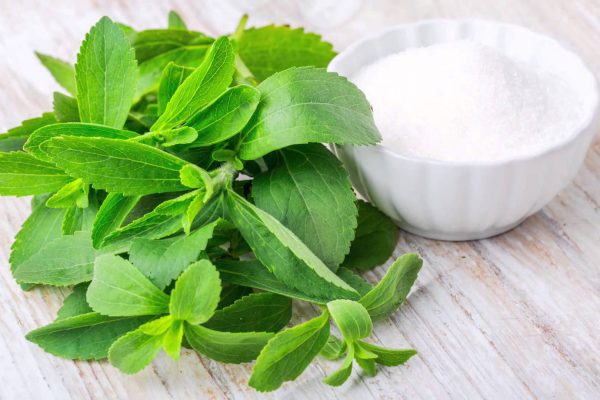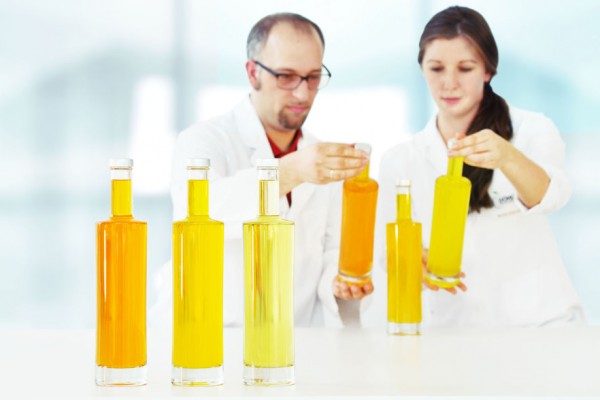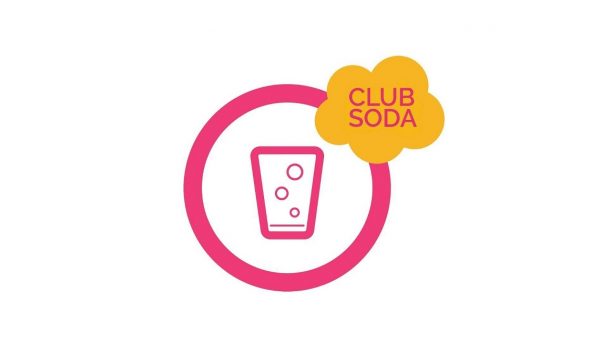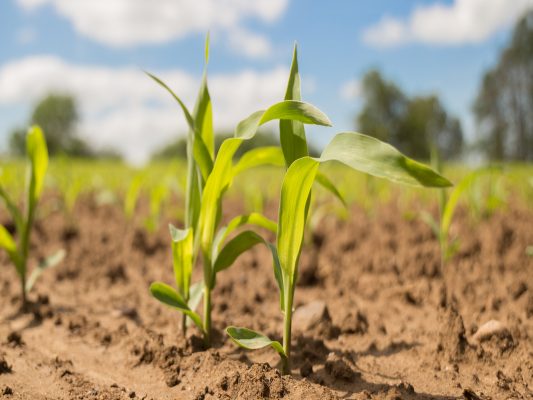How To
Generating Profit From Coffee Residue
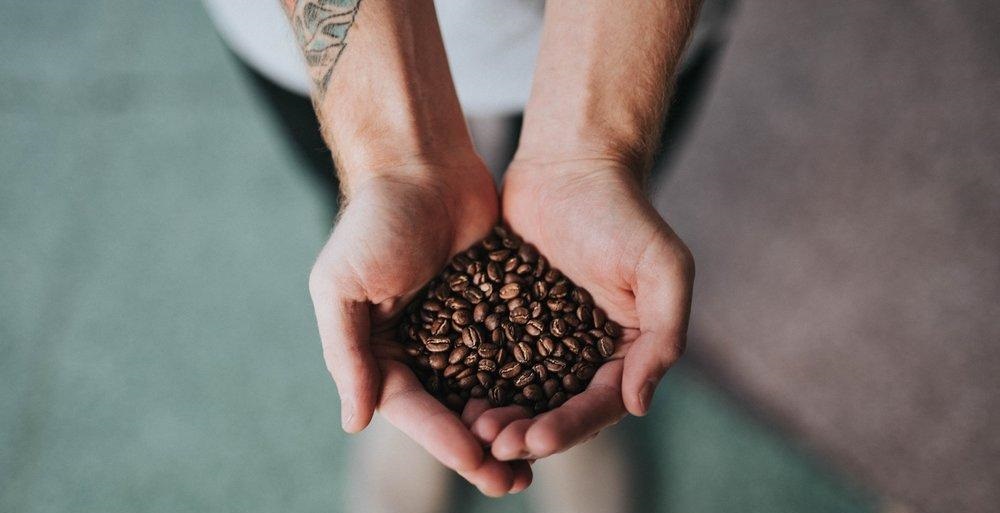 With more than 95 million cups of coffee being consumed on a daily basis in the UK in 2017, coffee consumption has reached a new peak, with no sign of it stopping any time soon. As so, significant economic advantages are created for businesses within the coffee industry, as more than £3.4 billion are being spent by British consumers on a yearly basis.
With more than 95 million cups of coffee being consumed on a daily basis in the UK in 2017, coffee consumption has reached a new peak, with no sign of it stopping any time soon. As so, significant economic advantages are created for businesses within the coffee industry, as more than £3.4 billion are being spent by British consumers on a yearly basis.
Nevertheless, one should consider the economic and environmental outcome that this trend has, due to the fact that its after-effect, as of now, is the annual creation of more than 500,000 tonnes of wasted coffee grounds. It is important to deal with the issue of coffee waste by analyzing the various ways the residue can be handled, both from an environmental as well as from an economic perspective.
Handling Coffee Residue
In order to provide a complete approach to tackling this problem, various stages should be taken into consideration.
 At the Early Stage of Coffee Production
At the Early Stage of Coffee Production
The first stage of doing so is by examining the various ways that the “pulp”, the outer skin of the coffee cherry, can be handled. As the pulp is not easily reproducible nor commonly used nowadays, it usually ends up in landfills and ultimately increases the overall waste disposal budget and environmental impact. Instead of doing so, there are two main approaches that could be followed:
- The creation of a substitute product for flour. Alternative byproducts like coffee flour, have proven to be beneficial for all social, economic, and environmental aspects of sustainability. By milling the pulp to a uniquely dynamic and flavour-rich ingredient, coffee flour can further help prevent worldwide food insufficiency.
- The pulp’s usage for the production of cascara. Cascara, also known as coffee cherry tea, is a herbal tea made from the dried skins of the coffee fruit and has gained extreme popularity over the past years. It has a sweet and cherry flavour and contains the same amount of caffeine as tea does. Not only does it allow for the coffee waste to be used in a creative way, but it also provides the opportunity for businesses to retail an eco-friendly and economically sustainable byproduct.
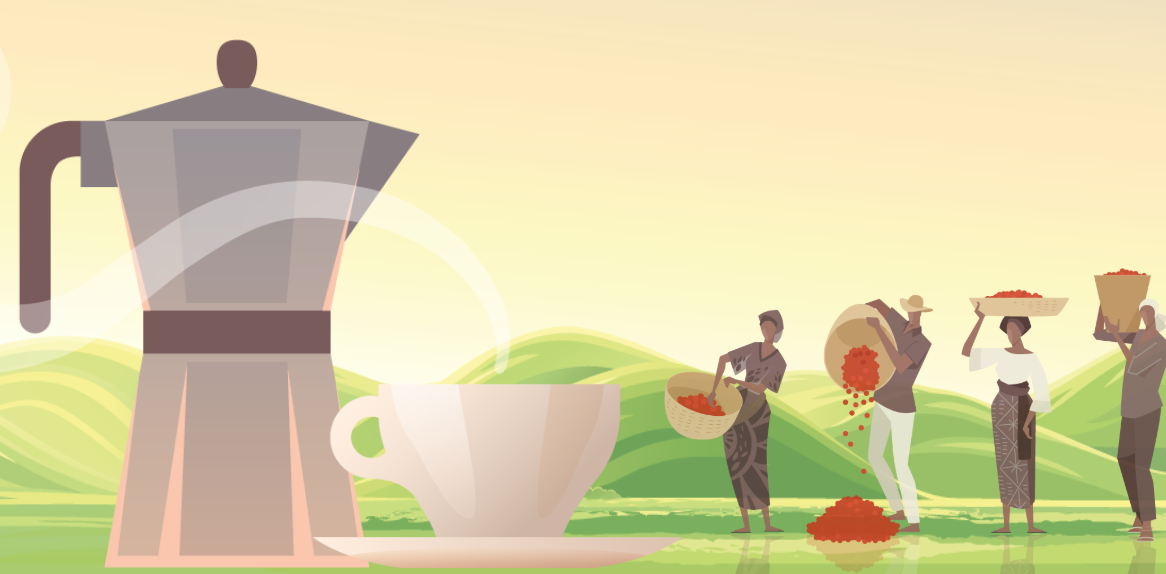 At the Posterior Stage of Coffee Consumption
At the Posterior Stage of Coffee Consumption
The second stage towards battling the issue of coffee waste is by looking at the plethora of ways that used coffee grounds can be re-purposed, as they generate the largest amount of waste.
Lately, different approaches and methods have been in development throughout the world, with the most relevant examples being:
- The creation of eco-heat logs for heating, wood-burners, stoves and open fires. Used coffee grounds can be used for the manufacturing of coffee logs, diverting waste away from costly landfills and reducing C02 emissions by more than 80%.
- The production of an effective biodiesel. Research has shown that 2.55 million cups can help create biofuel that is capable of fully operating a bus for an entire year. With pilot products already in the works, the potential of reusing used coffee grounds to power different means of transportation is extremely high, by reducing C02 emissions approximately 15% compared to traditional mineral diesel.
- The production of environmentally friendly coffee cups. Biodegradable, reusable, and durable cups can both minimize the impact of coffee waste from an environmental perspective and lead to significant capital savings for businesses.
Those examples pave the way towards transforming the coffee industry into a more economically and environmentally friendly sector, and can further help inspire and convince organisations about the importance of dealing with coffee residue. It is necessary to handle a crucial topic like this as soon as possible, considering the continuously increasing demand of coffee consumption in a worldwide basis.
For more information visit Market Inspectors.

